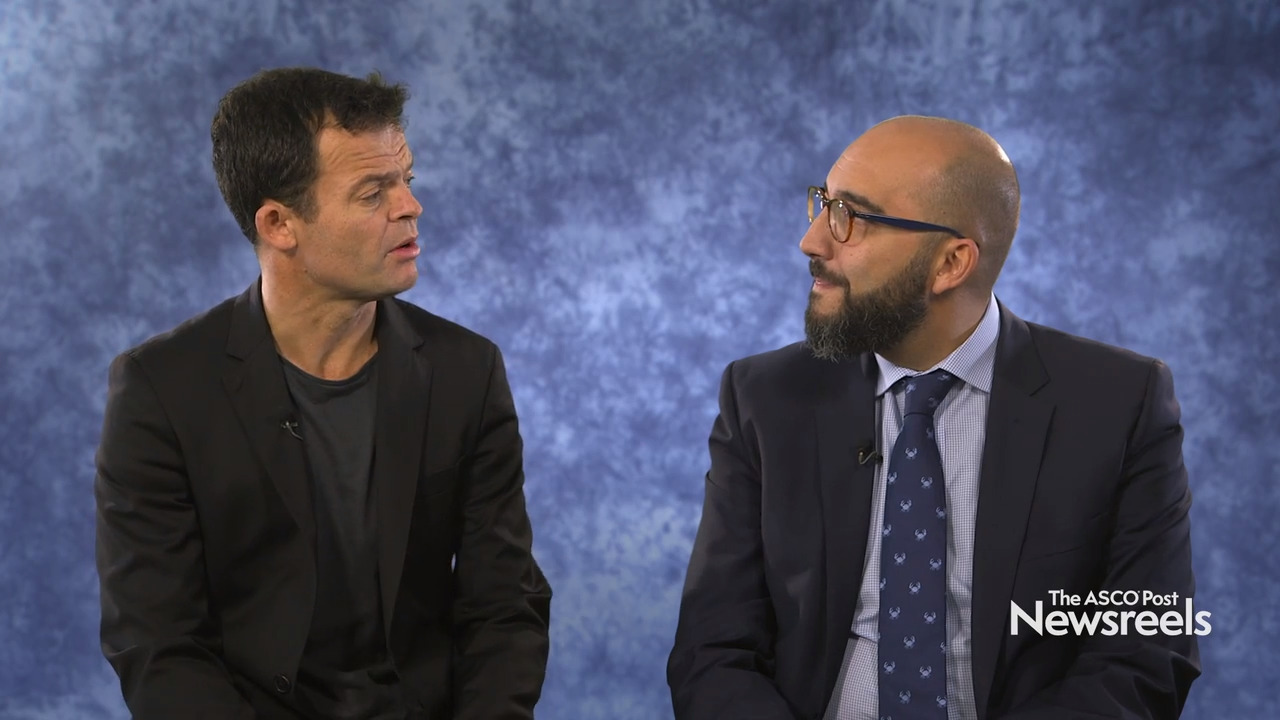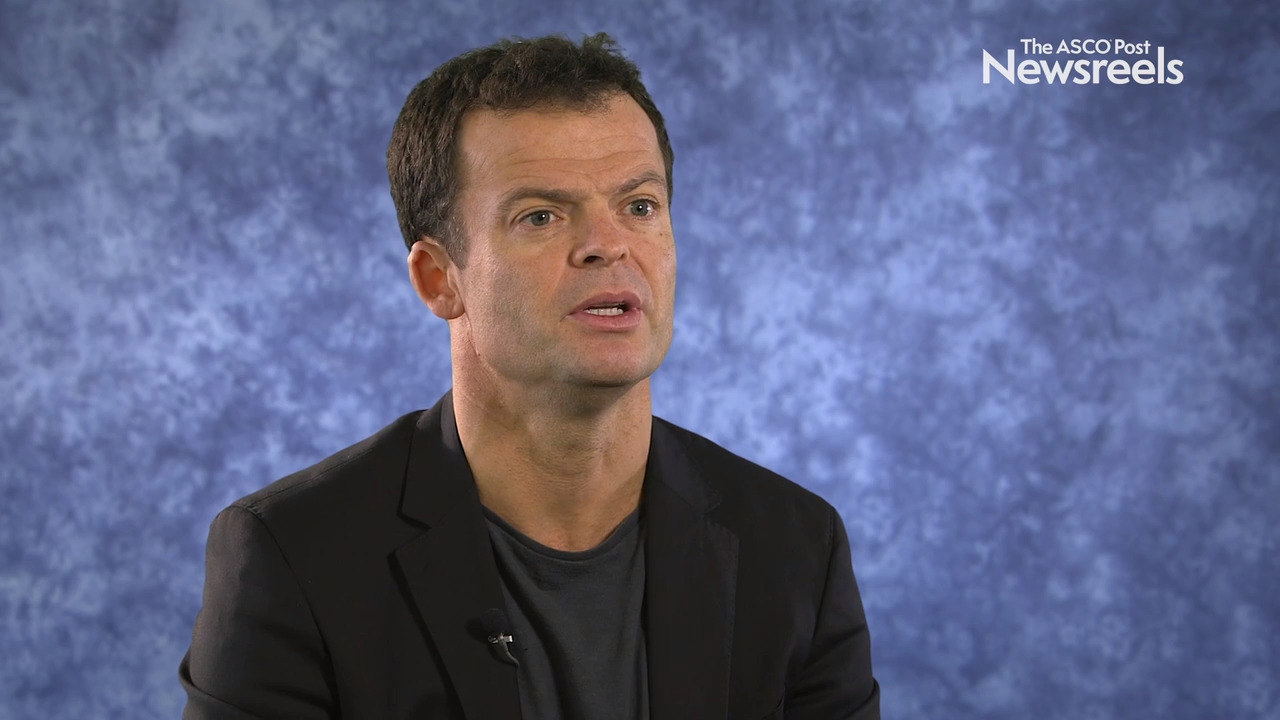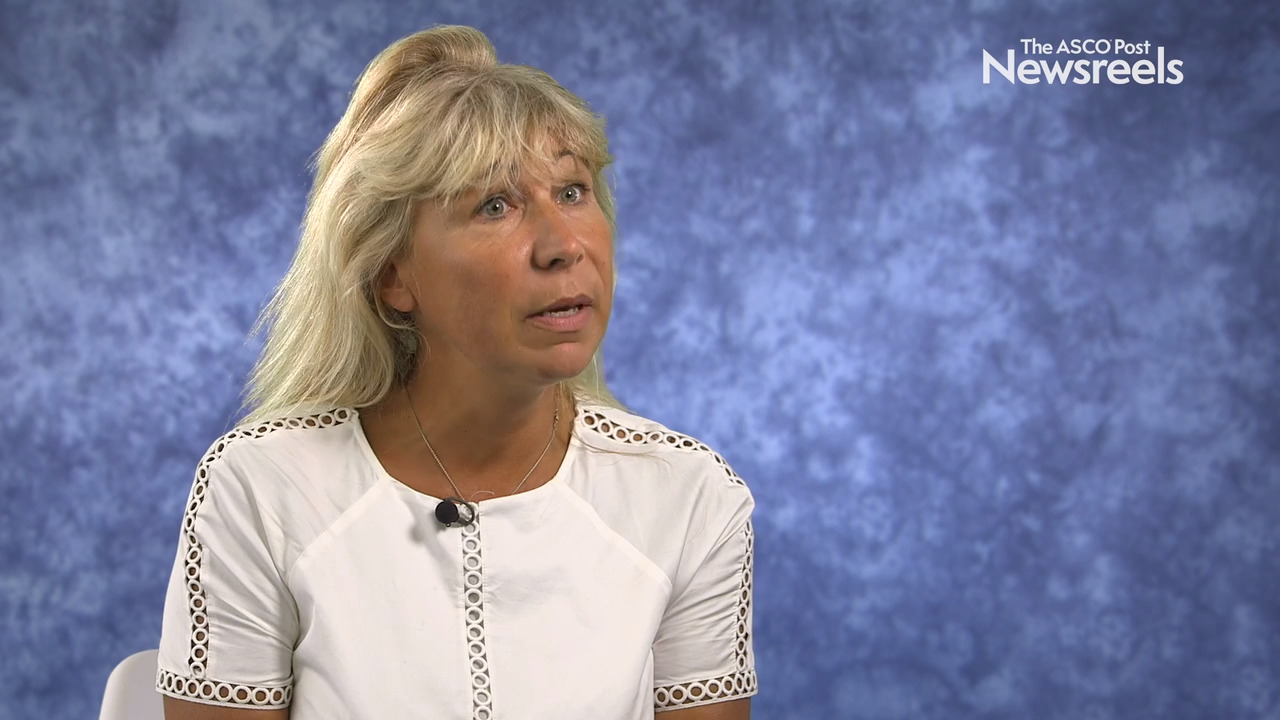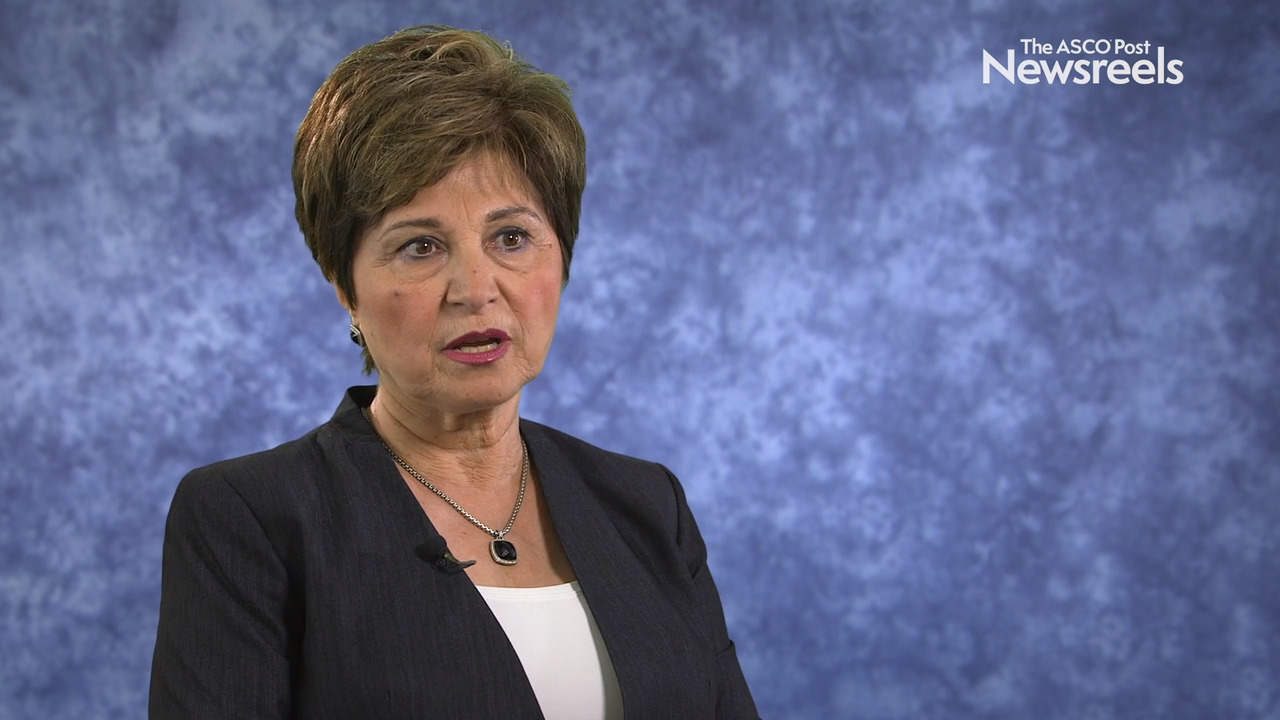Ronald de Wit, MD, PhD, on Prostate Cancer: Results of the CARD Trial on Cabazitaxel, Abiraterone, and Enzalutamide
ESMO 2019 Congress
Ronald de Wit, MD, PhD, of the University Medical Center Rotterdam, discusses study findings which showed that cabazitaxel improved radiographic progression-free survival as well as overall survival in patients with metastatic castration-resistant prostate cancer (Abstract LBA13).
Thomas Powles, MD, PhD, of Queen Mary University of London, and Enrique Grande, MD, PhD, of MD Anderson Cancer Center, Madrid, discuss findings of the phase III IMvigor130 trial on the efficacy and safety of atezolizumab as monotherapy or combined with platinum-based chemotherapy vs placebo plus platinum-based chemotherapy in previously untreated locally advanced or metastatic urothelial carcinoma (Abstract LBA14).
Thomas Powles, MD, PhD, of Queen Mary University of London, discusses the first study to examine immunotherapy and targeted treatment combinations with a personalized approach in bladder cancer. FGF, TORC1/2, and PARP inhibitors were explored in combination with durvalumab in selected patients (Abstract 902O).
Isabelle Ray-Coquard, MD, PhD, on Ovarian Cancer: Olaparib Plus Bevacizumab
Isabelle Laure Ray-Coquard, MD, PhD, of the Centre Leon Bérard, discusses phase III study findings in patients with newly diagnosed, advanced ovarian cancer who received olaparib plus first-line bevacizumab maintenance treatment. Compared with placebo plus bevacizumab, olaparib improved progression-free survival, with the greatest benefit in women with BRCA mutations and positive homologous recombination deficiency status (Abstract LBA2).
Suresh S. Ramalingam, MD, of Emory University, discusses results from the final overall survival analysis of the phase III FLAURA trial in EGFR-mutated advanced non–small cell lung cancer, which showed that osimertinib provided a survival benefit vs comparator EGFR tyrosine kinase inhibitor therapy in the first-line setting (Abstract LBA5).
Maha H.A. Hussain, MD, of Northwestern University Robert H. Lurie Comprehensive Cancer Center, discusses the phase III PROfound trial results on the efficacy of olaparib in men with metastatic castration-resistant prostate cancer whose tumors harbor alterations in DNA damage response genes and who had disease progression on prior hormone therapy (Abstract LBA12).





